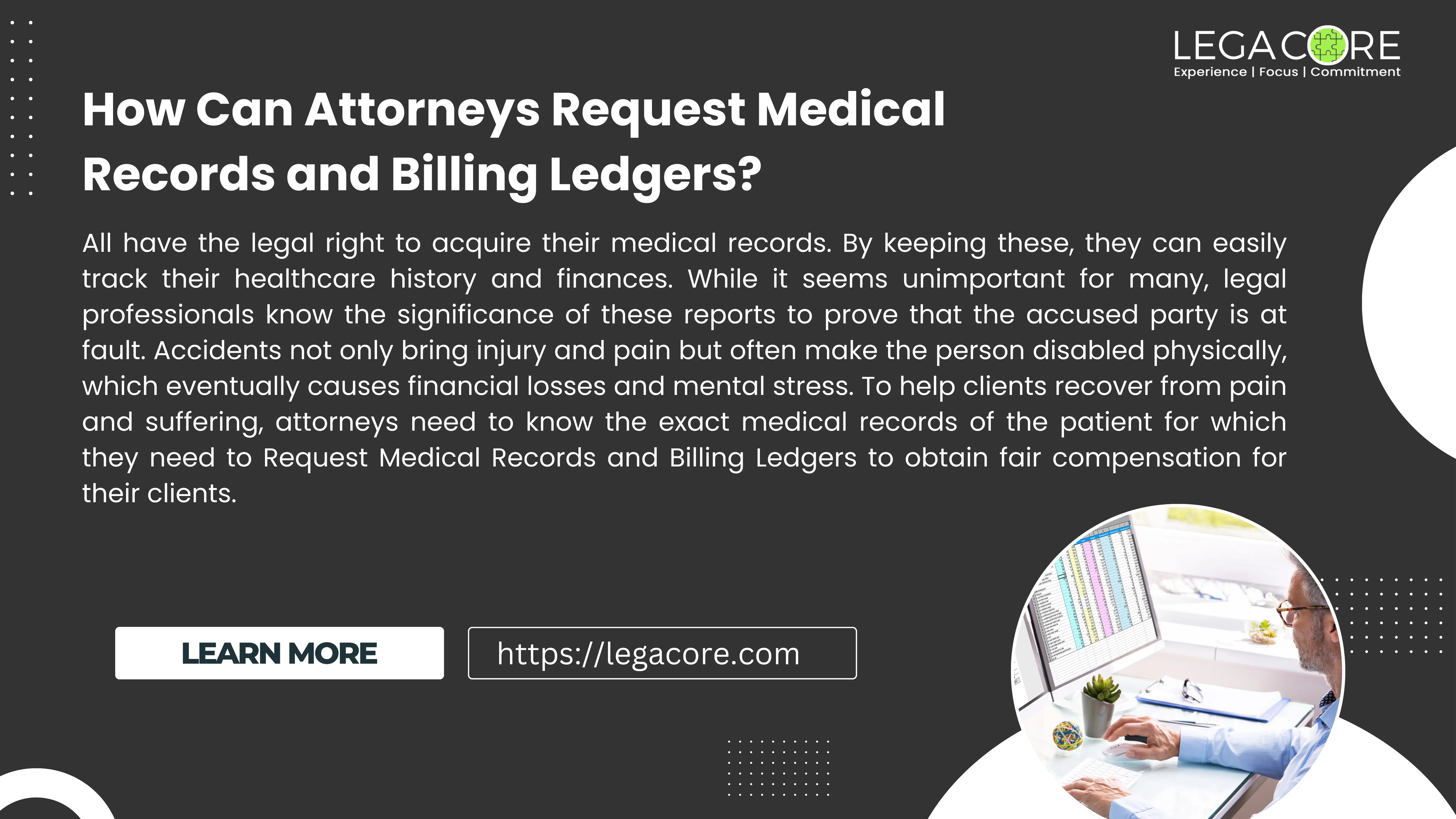All have the legal right to acquire their medical records. By keeping these, they can easily track their healthcare history and finances. While it seems unimportant for many, legal professionals know the significance of these reports to prove that the accused party is at fault. Accidents not only bring injury and pain but often make the person disabled physically, which eventually causes financial losses and mental stress. To help clients recover from pain and suffering, attorneys need to know the exact medical records of the patient for which they need to Request Medical Records and Billing Ledgers to obtain fair compensation for their clients.

Apart from Request Medical Records/Bill Processing, it is essential for lawyers to retrieve, organize, and secure the data, which requires relevant expertise and experience. The below-mentioned strategies are a few cost-effective methods of retrieving medical records.
Before executing any legal task, it is essential to obtain patient permission. Under the Health Insurance Portability and Accountability Act (HIPAA), it is mandatory to provide HIPAA-authorized retrieval requests to obtain client medical & billing information.
Despite fair charging guidelines, retrieval Requests of Medical Records and Billing Ledgers are expensive. Attorneys must ensure that medical service providers are not charging unreasonable prices. Ensuring such details prevents the costly process.
For faster retrieval, it is vital to double-check the address by identifying the correct department from where you wish to collect the medical records information. After finding the department, make a call to verify the details are accurate before sending a request.
Proper evaluation of required medical records for trial is essential. Gathering irrelevant data can be time-consuming. Additionally, it can be costly and lead to losing the winning potential of a case. Therefore, it is wise to specify the types of records you need for the particular case.
Once you have placed the Request for Medical Records/Bills processing, it is important to follow up frequently. Inquiring within the stipulated time is vital to prevent delays. According to Federal Law, requests must be met by the organizations within a month or 30 days after giving the request. It can help accelerate the process quickly. You can even track the request status online if it is available.
Once you get your client's medical records, it is essential to organize them appropriately. So you can use them effectively. These diverse records consist of vital information, such as patient history, billing, lab tests, medications, and more help in building a strong case. Organizing the records beforehand helps to find any vital information quickly to build and present a case.
If you are still on to old methods to Request Medical Records and Billing Ledgers and facing undesirable mistakes that ultimately cause delayed retrievals, you need to upgrade. The current legal industry has upgraded with technology as it helps streamline the processes smoothly. With modern solutions, medical records retrieval has become quick and easy. You must find a reliable outsourced support service to ensure a fast turnaround. While the Request for Medical Records and Billing Ledgers is a difficult process, leveraging outsourced support can help law firms and attorneys quickly get through this complex process. Legacore Solutions is one such name that has been providing support services to leading law firms.
+1-305-846-8994 / +1-813-252-2747 (USA),
+91-7894990642
(WhatsApp)
marketing@int.legacore.com